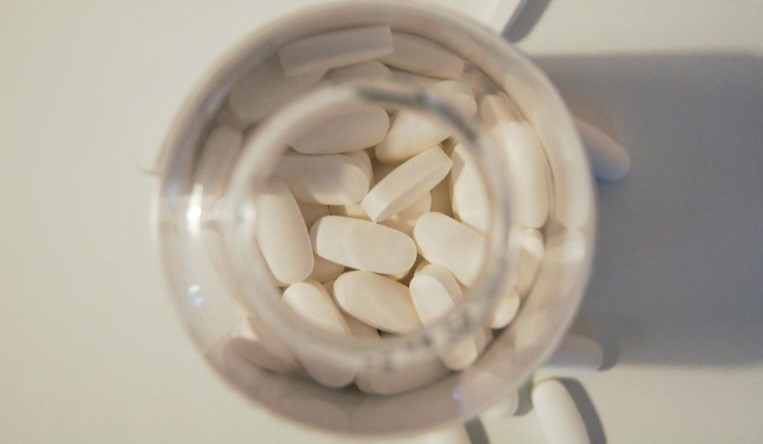Opponents of patent applications for HIV prevention drug in India cry “evergreening”
18 October 2024

On October 2, 2024, U.S.-based pharmaceutical company Gilead Sciences signed non-exclusive, royalty-free voluntary licensing agreements with six generic manufacturers to produce and sell generic versions of the HIV prevention drug Lenacapavir in 120 low- and middle-income countries. Among these countries is India which has the biggest generic drug industry outside the U.S.
Lenacapavir has been shown to exhibit 100 percent efficacy and safety in a clinical trial involving women in sub-Saharan Africa. Another clinical trial indicated 99.9 percent efficacy. Men, transgender men and women, as well as gender non-binary persons in the U.S., Thailand, Argentina, Brazil, Mexico, Peru and South Africa who engaged in sexual relations with men participated in the second trial.
Prior to Gilead’s signing of the licensing agreements, pre-grant oppositions to the firm’s patent applications in India for Lenacapavir were filed mainly by community health organizations and patient groups including Sankalp Rehabilitation Trust. These oppositions are based primarily on the issue of “evergreening.”
Among these patent applications in India are IN202017007904 and IN202017010006. Filed on February 25, 2020, and March 9, 2020, respectively, both seek protection for the choline and sodium salt of the drug LEN. According to Sankalp, which works with HIV vulnerable populations, the compounds claimed in the two patent applications are crystalline forms of a known LEN compound. Under Section 3(d) of the Patents Act, 1970, these are non-patentable.
Section 3(d) does not allow the patenting of inventions relating to “the mere discovery of a new form of a known substance which does not result in the enhancement of the known efficacy of that substance or the mere discovery of any new property or new use for a known substance or of the mere use of a known process, machine or apparatus unless such known process results in a new product or employs at least one new reactant.”
Therefore, non-patentable under Section 3(d) are new forms of known substances, salts, esters, ethers, polymorphs, metabolites, pure form, particle size, isomers, mixtures of isomers, complexes, combinations and other derivatives of known substance shall be considered to be the same substance, unless they differ significantly in properties with regard to efficacy.

Ranjna Mehta-Dutt | Partner @ Remfry & Sagar, Gurugram.
The opponents argued that granting the patents will lead to “evergreening” of the patent over the LEN compounds already known in the art. “Through minor modification, Gilead is attempting to extend the monopoly on these drugs beyond the 20-year period, i.e., until August 2038,” said Ranjna Mehta-Dutt, a partner at Remfry & Sagar in Gurugram. “To support their arguments, the opponents had filed further evidence in the form of an affidavit and argued that while the claims of these applications focused on a specific salt crystalline form and the process for preparing an isomerically pure compound, the data on EC50, CC50 and pharmacokinetics should have been generated using the claimed salt crystalline form or specific isomer. However, both these applications disclose the compound with their biological activities, same as the prior art compounds and do not address the claimed salt crystalline isomeric form. The evidence filed by them implies that such multiple filings disclosing the same core concept are a strategy to extend the patent life of a single invention which amounts to ‘evergreening.’”
Gilead denied the allegations regarding Section 3(d). “They contended that IN202017007904 and IN202017010006 pertain to crystalline forms of N-((S)-1-(3-(4-chloro-3-(methylsulfonamido)-1-(2,2,2-trifluoroethyl)-1Hindazol-7-yl)-6-(3-methyl-3-(methylsulfonyl)but-1-yn-1-yl)pyridin-2-yl)-2-(3,5-difluorophenyl)ethyl)-2-((3bS,4aR)-5,5-difluoro-3-(trifluoromethyl)-3b,4,4a,5-tetrahydro-1H-cyclopropa[3,4]cyclopenta[1,2-c]pyrazol-1-yl) acetamide choline salt and sodium salts, respectively having distinguishing X-ray peaks,” said Mehta-Dutt.
Gilead added that: 1) the claimed compounds are novel compounds and cannot be held as a “mere discovery” within the meaning of Section 3(d); 2) the opponents failed to identify “known substance” in the prior art and hence there is no known substance over which the invention claimed in these applications can be deemed to be lacking in efficacy; and 3) specific compound Lenacapavir is not disclosed anywhere in the cited documents.
According to Mehta-Dutt, “evergreening” can pose a barrier to the entry of generic drug manufacturers and thus hinder the public’s access to more affordable versions of Lenacapavir in India.
Administered as injection shots twice a year at six-month intervals, Lenacapavir costs approximately US$42,250 per patient per year for two shots – an unreasonably high price tag for most HIV patients in India. On the other hand, information has it that Indian manufacturers have developed the necessary active pharmaceutical ingredient and are ready to produce generic versions of the drug on a huge scale. Its possible price tag? Only US$100 per person per year.
If the patents are granted, however, more affordable drugs will not be within reach of most HIV-infected people in India.
The pre-grant opposition hearings on Gilead’s patent applications are pending. Mehta-Dutt emphasized that the firm’s licensing agreements with the six generic manufacturers will not impact the pre-grant opposition proceedings in any way. The six manufacturers are Dr. Reddy’s Laboratories, Emcure Pharmaceuticals, Ferozsons Laboratories in Pakistan, Eva Pharma in Egypt, U.S.- based Mylan and Hetero Drugs from India. “In a scenario, where Gilead is successful in defending its applications at the pre-grant stage, the possibility of filing post-grant opposition cannot be ruled out,” said Mehta-Dutt.
- Espie Angelica A. de Leon






